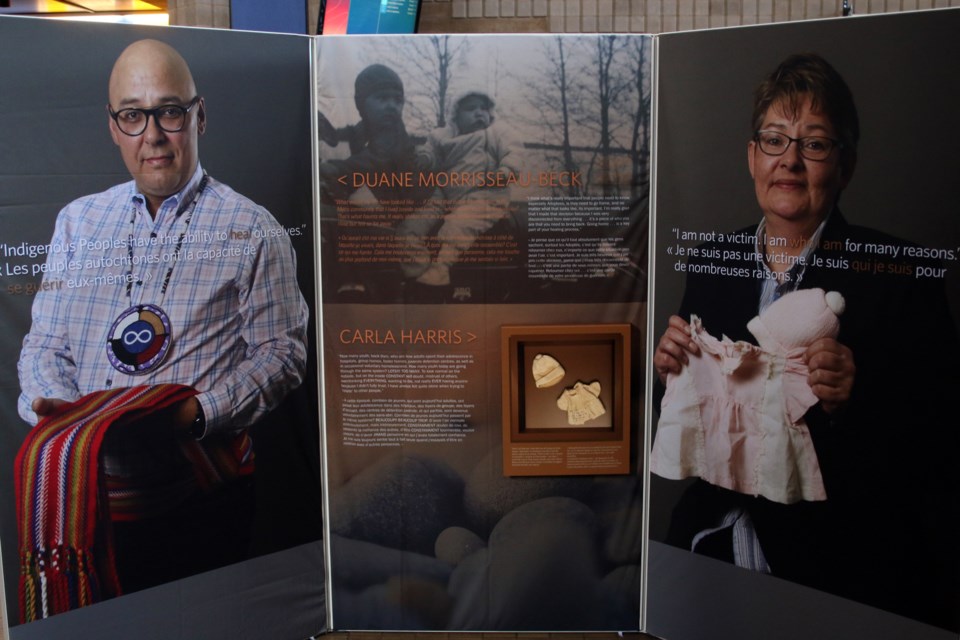Survivors of the notorious Sixties Scoop have marked a milestone with the ceremonial launch of the Sixties Scoop Healing Foundation.
An estimated 20,000 Indigenous children were torn from their homes and placed in mainly non-Indigenous ones during the Sixties Scoop that technically spans from the 1950s to 1980s.
The $50-million foundation is part of a class-action settlement with the federal government created to offer aid and to advocate on survivors' behalf.
"I don't like using the word 'survivor'," Sally Susan Mathias, one of the lead plaintiffs in the class-action against Ottawa, said during the ceremony. "But, that is truly what it is to live through trauma and to be able to grow up and come through such hard days."
Maggie-Blue Waters, another of the lead-plaintiffs in the class-action suit, was five years old when she was torn from her family.
"Before we were scooped, my life was the way it was intended to be," said Waters. "With my family, we had a humble Cree cultural lifestyle, happy and content on the land by the lake."
"Then one day in 1962, our lives were systematically shattered."
Waters had been in the care of her grandparents while her parents worked at the time she, her siblings, and her cousins were taken.
"I was the oldest one in the car that day," said Waters. "I was five and I was frantic - scratching at the window of the moving car and tormented by the terror in my family's faces as the car drove away."
"Then I looked to see and hear my cousins and my siblings wailing and wanting to go home."
Waters said she made a vow in that moment to bring her family back home, though it would take 29 years for her to find her way back. By that time, her grandparents and father had already died, her mother is considered one of the missing and murdered.
"For myself, as a survivor of the Sixties Scoop, I believe our Healing Foundation is designed to bring us back home," said Waters. "Our collaboration of gifts, of skills and of talents can give to us complete healing and restoration."
It's a sentiment shared by Mathias who said the foundation is built by, run by, and has the understanding and expertise of survivors.
"I'm very relaxed in knowing that there are others who share the same dream," said Mathias. "A waking, living dream that life can be better. We can make it that way."
Mathias called the launch of the foundation a cause for celebration.
"Not only for myself personally, but a celebration for people all across Canada to be able to say 'look what we can do'."



